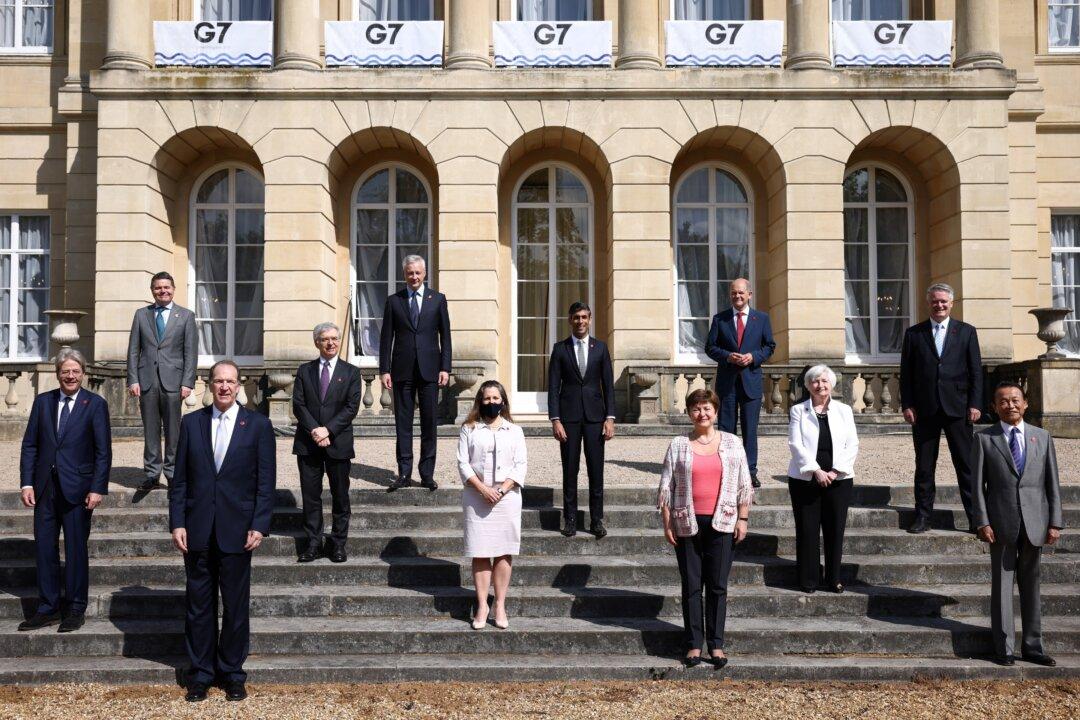The world’s leading industrial nations reached an accord on June 5 to set a global minimum tax rate, in an effort to discourage multinational corporations from shifting profits to low-tax countries. While the accord is a significant breakthrough for those seeking international agreement on corporate taxes, there’s more work ahead.
The Group of Seven (G-7) nations agreed to “commit to a global minimum tax of at least 15 percent on a country by country basis,” according to a communique from G-7 finance ministers. The group is hoping to reach a similar agreement at the Group of 20 meetings next month, which may lead to a broader deal for the Organization for Economic Cooperation and Development (OECD) this year.





